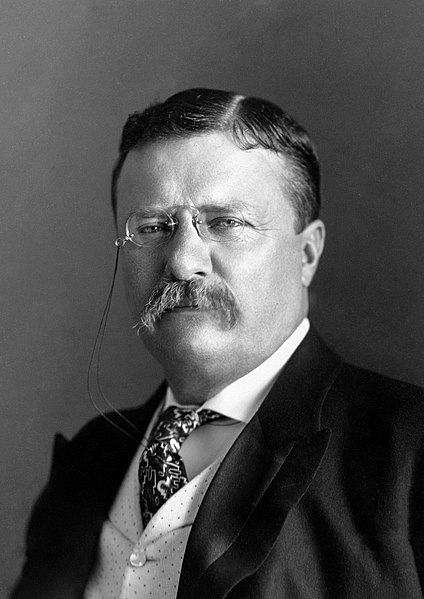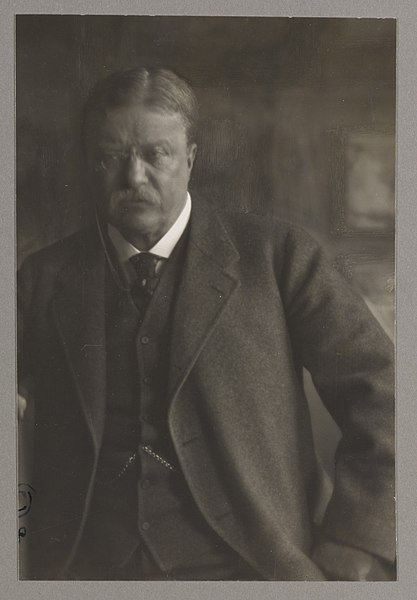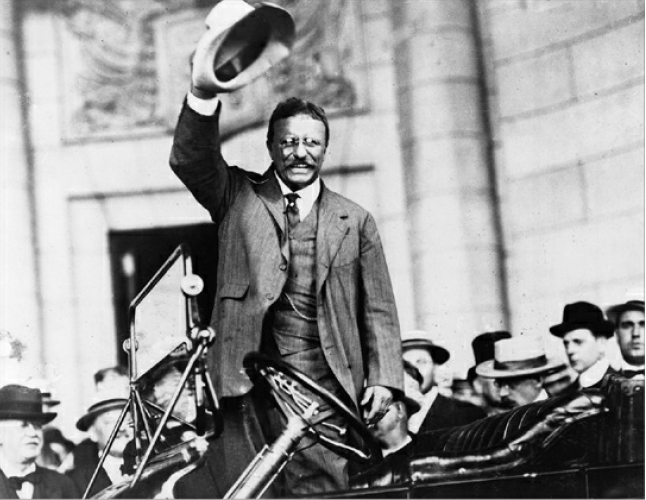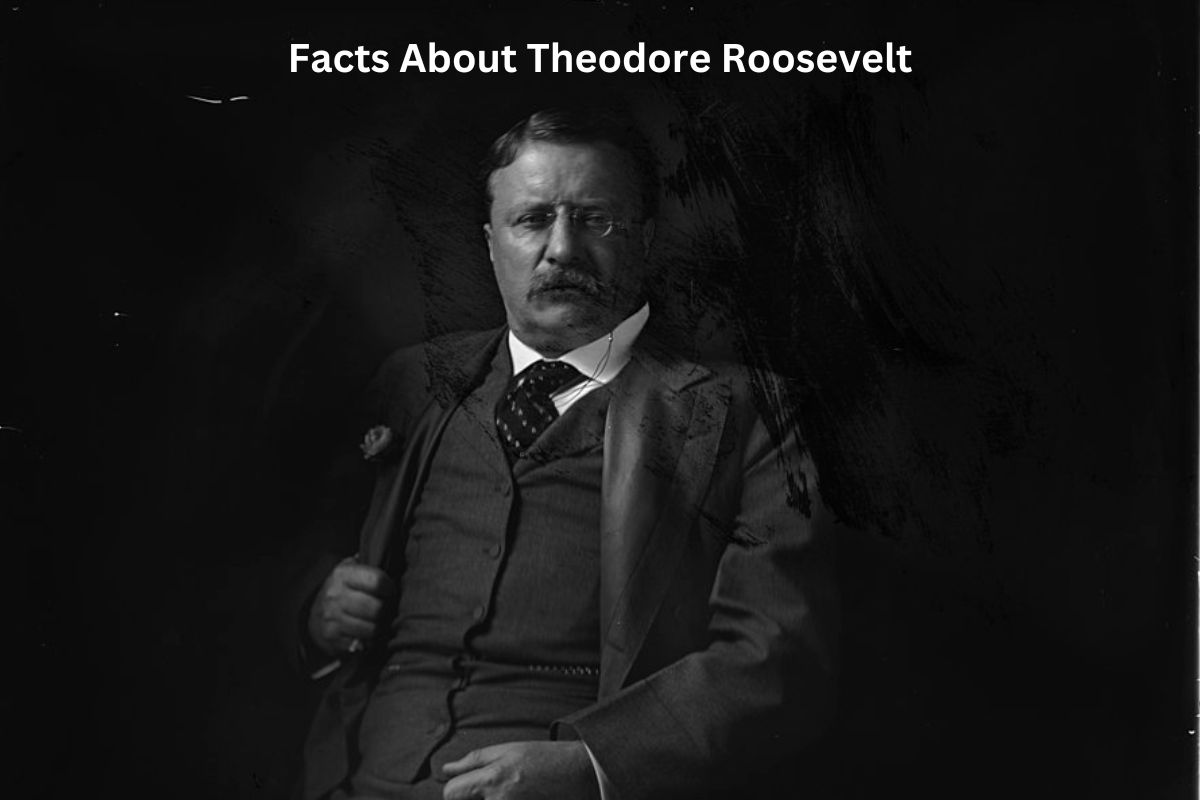Theodore Roosevelt, born on October 27, 1858, in New York City, was a prominent American statesman, soldier, naturalist, and the 26th President of the United States.
His life was marked by a series of remarkable achievements, from his early days as a cowboy and rancher in the Badlands of North Dakota to his dynamic leadership in domestic policy, foreign diplomacy, and environmental conservation during his presidency.
Known for his “Square Deal” progressive reforms, trust-busting efforts, and the expansion of the National Park System, Roosevelt left an indelible mark on American history and remains an enduring symbol of leadership and conservation.
Theodore Roosevelt Facts
1. Born on October 27, 1858, in New York City
Theodore Roosevelt was born on October 27, 1858, in New York City. He came from a prominent and wealthy family known as the Roosevelts.
His father, Theodore Roosevelt Sr., was a successful businessman, philanthropist, and one of the founders of the American Museum of Natural History.
Also Read: Theodore Roosevelt Timeline
His mother, Martha Bulloch Roosevelt, came from a wealthy Georgia family. Growing up in this affluent environment provided young Theodore with many opportunities and privileges.

2. Graduated from Harvard College in 1880
Roosevelt’s educational journey led him to Harvard College, where he pursued a Bachelor of Arts degree. He graduated in 1880 and was an active student during his time there.
While at Harvard, he developed a deep interest in natural history and biology, which would later influence his environmental conservation efforts. His academic pursuits and love for learning continued throughout his life.
3. Lived as a cowboy and rancher in North Dakota
After a tragic day in 1884 when both his wife, Alice Hathaway Lee Roosevelt, and his mother died, Roosevelt retreated from New York City and politics. He sought solace and adventure in the Badlands of North Dakota. There, he lived the life of a cowboy and rancher.
Also Read: Accomplishments of Theodore Roosevelt
This experience in the American frontier allowed him to connect with the rugged, outdoor lifestyle he would later be known for.
He became an active participant in cattle ranching and spent time hunting, which not only improved his physical health but also solidified his reputation as a man of action and endurance.
4. Held various political positions, including Governor of New York
After his time in the Badlands, Theodore Roosevelt returned to politics. He served as a Republican in various positions, including as a member of the New York State Assembly from 1882 to 1884.
Roosevelt’s tenure as a New York City Police Commissioner from 1895 to 1897 brought him recognition for his efforts to reform the corrupt police department. He implemented various measures to improve the professionalism and integrity of the force.
In 1897, he was appointed as the Assistant Secretary of the Navy under President William McKinley. In this role, he advocated for the modernization of the U.S. Navy, which would later prove crucial during the Spanish-American War.

5. Led the Rough Riders during the Spanish-American War
During the Spanish-American War in 1898, Theodore Roosevelt resigned from his position in the Navy Department to form the 1st U.S. Volunteer Cavalry Regiment, famously known as the Rough Riders.
The Rough Riders consisted of a diverse group of volunteers, including cowboys, ranchers, and Ivy League athletes. Roosevelt’s leadership and charisma played a significant role in their success.
The Rough Riders are best known for their charge up San Juan Hill in Cuba, a daring and successful assault that helped secure victory in the war. This feat made Roosevelt a national hero.
6. Became the 26th President of the United States
After serving as Governor of New York from 1899 to 1900, Theodore Roosevelt was selected as Vice President of the United States in 1901, running alongside President William McKinley.
In September 1901, President McKinley was assassinated, making Roosevelt the 26th President of the United States at the age of 42. He remains the youngest person to ever hold the office.
During his presidency, Roosevelt focused on Progressive reforms, often referred to as the “Square Deal,” which aimed to address issues of trust busting, consumer protection, and conservation.
7. Championed Progressive policies
As President of the United States, Theodore Roosevelt was a leading figure in the Progressive Era. He believed in using the power of the federal government to address social and economic problems caused by rapid industrialization and urbanization.
Roosevelt was known for his trust-busting efforts, using antitrust laws to break up large monopolistic corporations that were seen as stifling competition and harming consumers. His administration initiated more antitrust suits than any previous one.
He also championed consumer protection and worked to improve food and drug safety. The Pure Food and Drug Act and the Meat Inspection Act, both signed into law in 1906, were significant accomplishments of his presidency.

8. Received the Nobel Peace Prize in 1906
In 1906, Theodore Roosevelt was awarded the Nobel Peace Prize for his role in mediating the end of the Russo-Japanese War, which had been ongoing since 1904. His efforts led to the Treaty of Portsmouth, which helped resolve the conflict.
Roosevelt was the first sitting U.S. President to receive the Nobel Peace Prize, and his diplomatic efforts were seen as an important step toward peace in the early 20th century.
9. Conservation Efforts
Theodore Roosevelt had a deep appreciation for the natural environment, which had been nurtured during his time as a rancher and his interest in natural history.
His administration was instrumental in conserving America’s natural resources. He created five national parks, 18 national monuments, and 150 national forests. His dedication to conservation expanded the National Park System and helped preserve millions of acres of wilderness for future generations.
Roosevelt’s legacy in conservation is perhaps best exemplified by his establishment of the United States Forest Service and the passage of the Antiquities Act, which allowed the President to designate national monuments to protect historical and natural landmarks.
10. Left a lasting legacy in American politics and conservation.
Theodore Roosevelt’s legacy is enduring and multifaceted. He helped shape the modern presidency by expanding the powers and influence of the executive branch.
His commitment to conservation left a profound impact on environmental policy in the United States, and many national parks, forests, and monuments bear his imprint.
He remains a symbol of American rugged individualism and the spirit of the outdoors, reflected in his love for activities like hunting, hiking, and exploring.
Roosevelt’s larger-than-life personality and his contributions to American political and social life have made him a revered figure in U.S. history. His ideals and actions continue to be a subject of study and debate.
